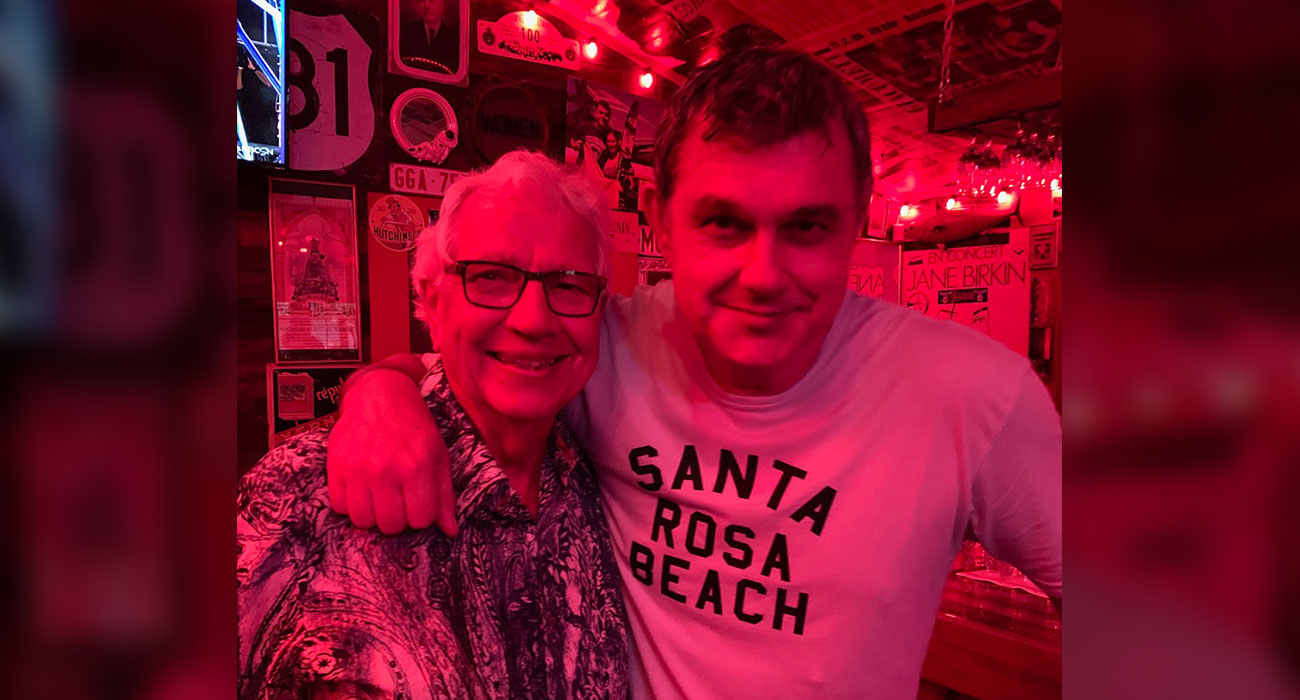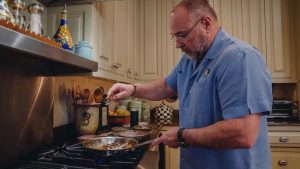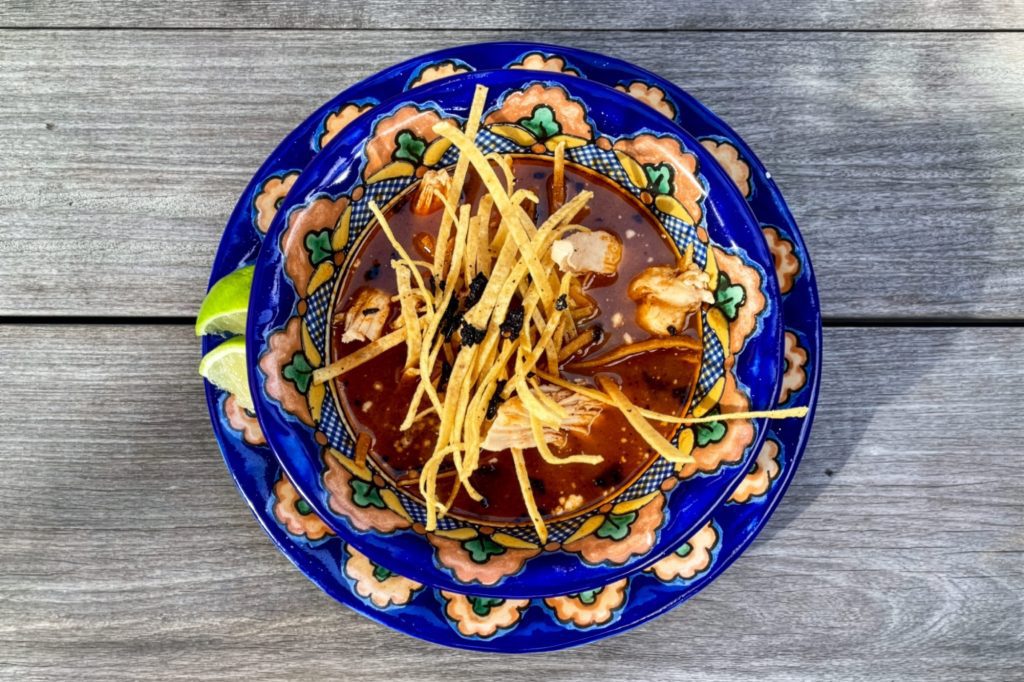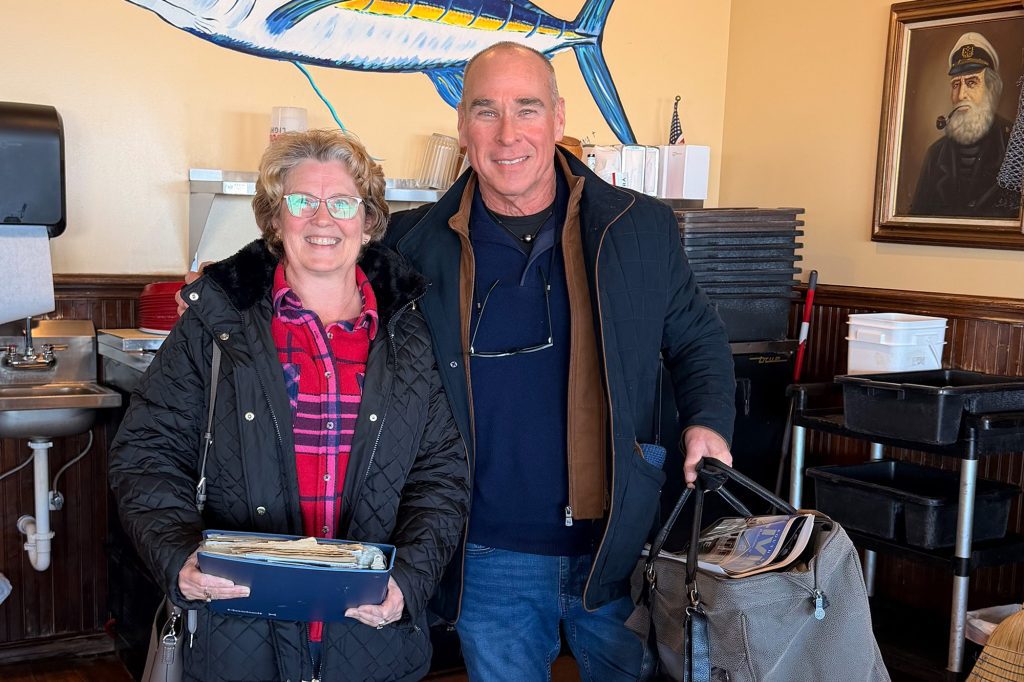Birdwatching seems like a strange hobby to me, but I have friends who do it, and they are fine people. The appeal of knitting, origami, and crocheting are foreign to me, but they certainly require a certain level of dexterity that I likely don’t possess. Hobbies such as woodworking, stamp collecting, gardening, photography, and rare coin collecting are all someone’s bag, just not mine.
My hobby is the restaurant business.
I love movies, music, football, and travel, but I don’t consider those hobbies. I don’t play golf. I go deep-sea fishing once a year, and the only hunting I do is turkey hunting, but the turkeys are safe in the woods when I’m around, as I’m not a very good hunter and have a hard time sitting still, anywhere.
My passion lies in the restaurant business. I love all aspects of it and have since I worked my first shift in a restaurant in 1982. I fill my off-hours with research and development of restaurant concepts, menu design, layouts, and decor. In college, I spent my spare time in the library pouring through the restaurant trade magazines in the periodical section and staying up until the early hours of the morning designing future kitchens, dining rooms, and menus.
When I travel, I enjoy learning about other places and cultures. But I mostly see it as an opportunity to do research and development for our restaurants. The same goes for vacationing. I’m not one to sit on a beach and bake in the sun. I don’t rest and relax well. I typically bounce from restaurant to restaurant in a new town gathering ideas and inspiration.
I am a restaurant nerd.
As a student of restaurant concepts, I have always been intrigued by the Red Bar in Grayton Beach in the Florida Panhandle. The last time I lived in the Destin area, 1987, Grayton Beach was a sleepy little beach community that was a throwback to an era before large condominiums and mega beach hotels. The building that now houses Red Bar was a restaurant concept called Paradise Café. Chef Johnny Earles was among a group of young upstarts who migrated from Baton Rouge to establish what I call “Destin cuisine.” The Paradise Café went against many of the typical “restaurant norms.” It was secluded and tucked away from the crowds. It served fine dining food in a very casual atmosphere, and there was no air conditioning.
When Oli Petit and his father Louis took over that building in 1994 and opened the Red Bar, I am sure the locals just assumed they were going to be another short-term occupant in a long line of revolving door concepts that had inhabited that building for decades. Little did they know that a culinary institution— whose legend would soon grow throughout the region— was being born.
The Red Bar is a restaurant concept that has impressed me for almost three decades. As the owner of a Creole dining concept that— before scaling it down during the COVID crisis— had a menu that had grown too large, but seemingly couldn’t be reduced, I envied a restaurant that could offer only five menu items. Five! It’s so extraordinary in its brilliance, my friend and fellow restaurateur, Charles Morgan used it as inspiration to develop his multi-unit restaurant concept, Five.
I used to repeat that statement to my wife, often. “This place is packed, and they only have five menu items.” On top of that, they only took cash. It went against almost every restaurant norm in the business. But the Petits had a long and storied track record in the restaurant business, and they knew exactly what they were doing.
The father-son team was experiencing what all of us other restaurant dogs out there, slugging away in the daily grind, could only dream of— two-hour waits, an extremely limited menu, an exceptionally casual atmosphere and work environment, tons of alcohol sales, and thousands of happy customers buying profitable t-shirts and spreading your concept’s name all across the southeastern United States. A moment of silence, please, out of respect for the genius of Oli and Louis Petit.
As a student of restaurant concepts, the Red Bar has always had my utmost respect. Louis Petit is a longtime veteran of fine dining restaurants. One can spot it as soon as he steps into the dining room. There is a certain way that the best fine-dining floor managers carry themselves. There is a relaxed air of confidence and calm while one is overseeing a well-oiled machine that few possess. I first saw it when famed New York restaurateur Danny Meyer walked into his dining room. There was a quiet sureness that everything was being handled exactly as it had been meticulously planned.
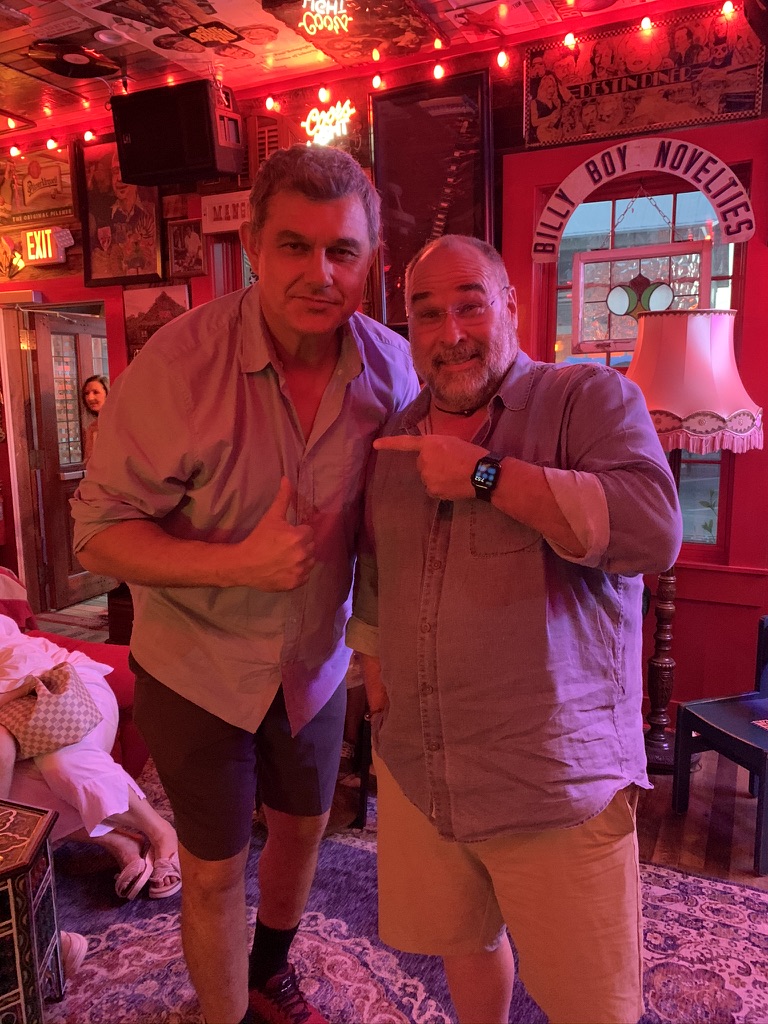
Just as the fictional Belgian, Hercule Poirot, was often mistaken for a Frenchman, I imagine the same occurs almost daily with the Petits’. Oli, the son, is larger than life, in stature and personality. He, too, knows how to work a dining room. Together the pair— along with a couple of other family members I have never met— have created a legion of raving fans and an amazing track record of restaurant success. The atmosphere has always been a world away from fine dining, but that doesn’t mean that it happened haphazardly. The look, the feel, the energy were all carefully crafted into one of the south’s great restaurant concepts.
It’s hard to spend more than five minutes in the Red Bar without having a good time. There is always a live band and the liquor flows freely.
Though of all of the things I have been amazed by over the years, possibly the most impressive feat is the restaurant’s rebirth and resurgence after a recent fire burned the joint down to the foundation. After more than 25 years dealing with a century-old building, with all of the standard difficulties that come with that scenario, 99% of restaurateurs I know would have made multiple and wholesale changes in design, atmosphere, and feel to the rebuilt business. The Petits resisted the urge to do that, and if one walked into the Red Bar today, not knowing it burned 18 months ago, one would just think that they had remodeled the bathrooms and added a coat of paint to the outside. Brilliant!
I was with my family in the Panhandle several weeks ago, a few days after the Red Bar reopened. It was packed as always. To the delight of the neighbors, off-site parking and a shuttle into Grayton are in place, but everything else felt just as it always has— fun. Oli took me on a tour through the new kitchen, and— even during the height of the rush during a reopening phase— the kitchen was running as smoothly as if it had never missed a beat.
Grayton Beach is still a sleepy little beach town. Maybe even a little sleepier these days since the traffic is gone. The Red Bar is back and as robust as ever.
The great thing about having one’s profession as one’s hobby is that I never have to work a day in my life. I am blessed to get up every morning, do my hobby, and get paid for it. I am sure that Oli and Louis Petit feel the same.
Welcome back, gentlemen. We missed you.
Onward.
